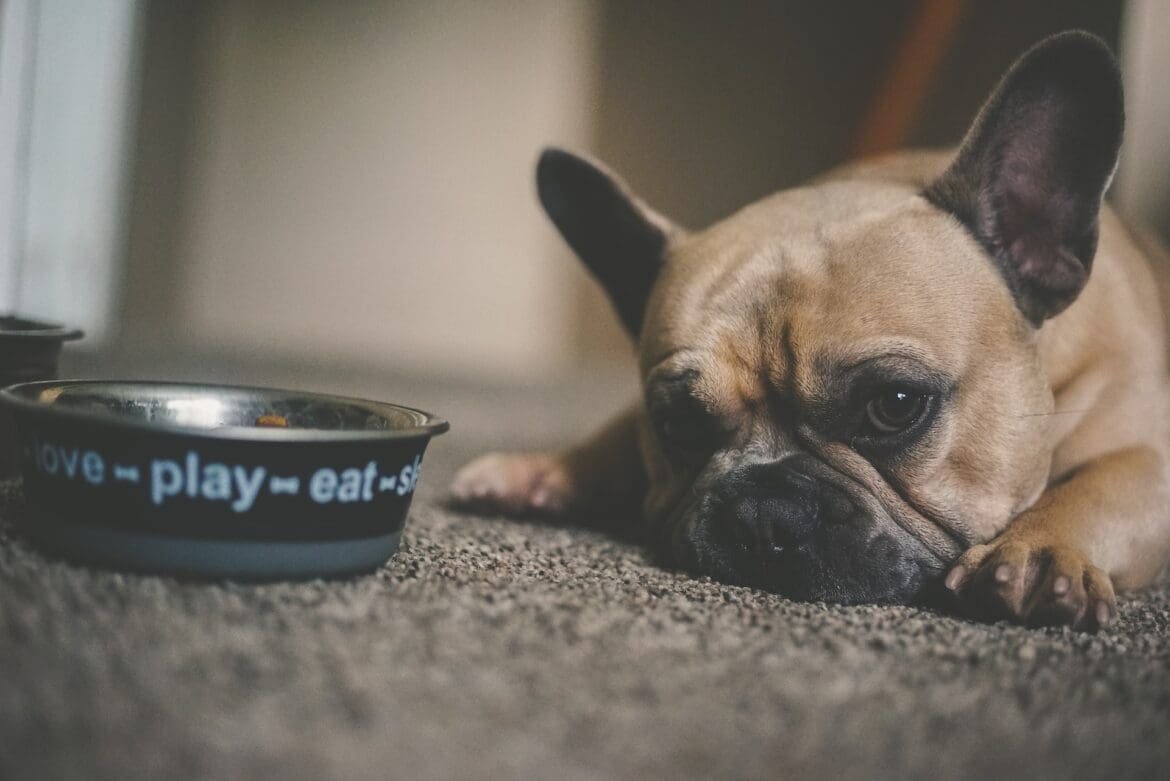Table of Contents
Are you a proud owner of a French Bulldog? And wondered, What Can French Bulldogs Eat? These adorable little companions have unique dietary needs. This article will explore what French Bulldogs can and cannot eat to ensure their health and happiness.
What Can French Bulldogs Eat? French Bulldogs are prone to specific health issues, including allergies and sensitivities, so it’s crucial to provide them with a well-balanced diet that meets their nutritional requirements. We will dive into the specific types of food that are safe and beneficial for French Bulldogs, as well as those that should be avoided.
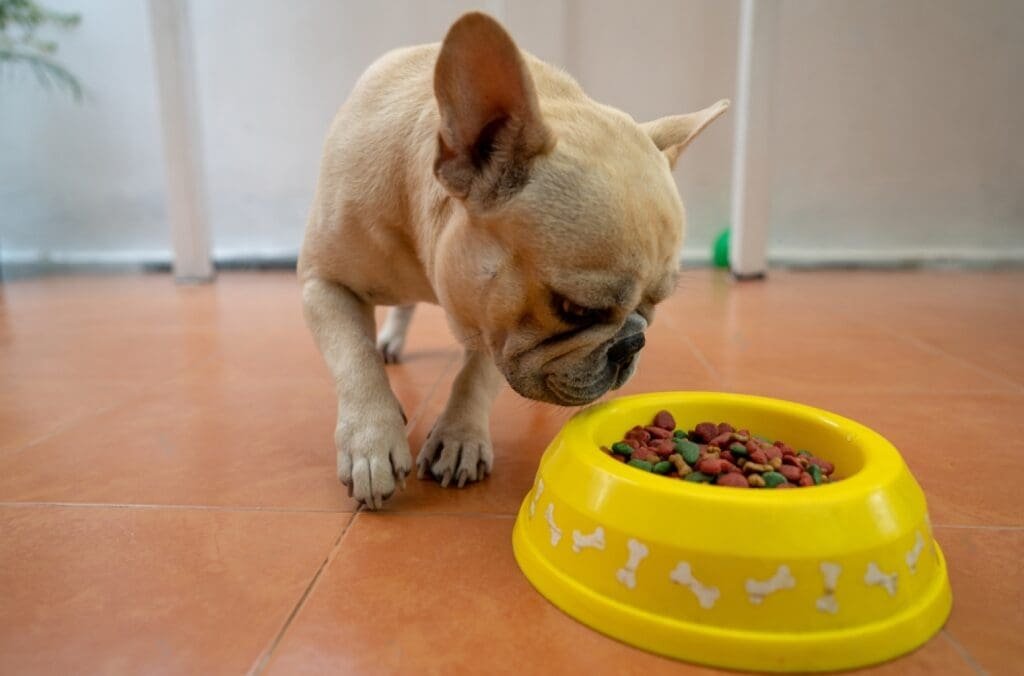
The Importance of a Balanced Diet For French Bulldogs
Like humans, French Bulldogs require a balanced diet to maintain their health and well-being. A balanced diet ensures they receive all the nutrients, vitamins, and minerals to support their growth, energy levels, and immune system.
Protein is a vital component of a French Bulldog’s diet. It helps build and repair tissues, supports muscle development, and provides energy. Good protein sources for French Bulldogs include lean meats like chicken, turkey, and fish. You can also have high-quality dog food with animal-based protein as the main ingredient.
In addition to protein, French Bulldogs also need healthy fats in their diet. Fats provide essential fatty acids, such as omega-3 and omega-6, which benefit their skin, coat, and brain health. In their diet, you can include fats from sources like fish oil, flaxseed oil, and coconut oil.
Carbohydrates are another vital component of a balanced diet for French Bulldogs. They provide energy and fiber. Opt for complex carbohydrates like sweet potatoes, brown rice, and whole grains, as they are more nutritious than simple carbohydrates.
Fruits and vegetables are also essential for French Bulldogs. They provide vitamins, minerals, and antioxidants that support their overall health. However, not all fruits and vegetables are safe for French Bulldogs, so it’s essential to know which ones to include and which to avoid, which we’ll discuss later in this guide.
What Can French Bulldogs Eat?
Now that we understand the importance of a balanced diet for French Bulldogs, let’s explore the safe foods for them. These foods provide the necessary nutrients and are less likely to cause adverse reactions or health issues.
Lean Meats
Lean meats like chicken, turkey, and lean cuts of beef are excellent protein sources for French Bulldogs. Remove any bones, skin, and excess fat before feeding them to your furry friend. Cook the meat thoroughly to eliminate any potential bacteria.
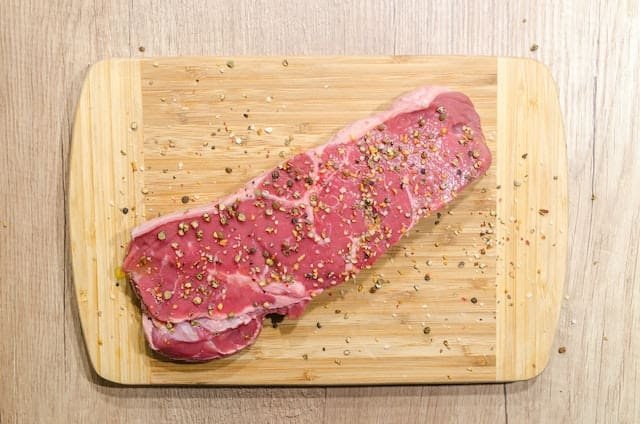
Fish
Fish, such as salmon and sardines, are rich in omega-3 fatty acids, which benefit a French Bulldog’s skin, coat, and joint health. Ensure the fish is boneless and cooked to avoid digestive issues or choking hazards.
Eggs
Eggs are a fantastic source of protein and contain essential amino acids. Cooked eggs can be a healthy addition to your French Bulldog’s diet. Avoid using any seasoning or additives while preparing the eggs.
Fruits
Certain fruits are safe and enjoyable for French Bulldogs. Apples, bananas, and blueberries are excellent choices. However, permanently remove the seeds and pits, as they can be toxic. Cut the fruits into small, bite-sized pieces to prevent choking.
Vegetables
Vegetables like carrots, green beans, and cucumbers can be included in your French Bulldog’s diet. These vegetables provide fiber, vitamins, and minerals. Steam or boil the vegetables to make them easier for your furry friend to digest.
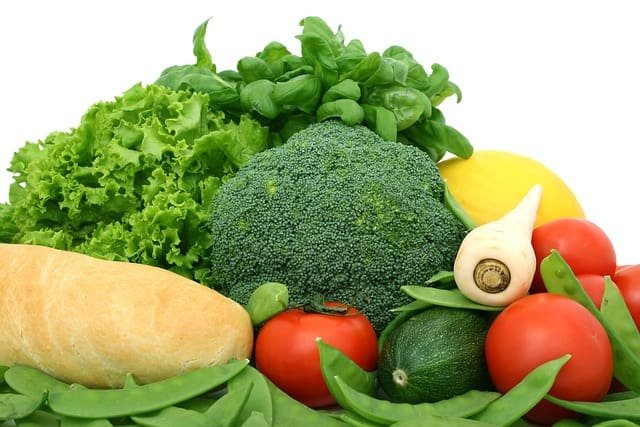
Remember, while these foods are generally safe for French Bulldogs, it’s essential to introduce them gradually and monitor your dog for any adverse reactions. Every dog is unique; some may have specific dietary restrictions or sensitivities.
Foods That Are Harmful To French Bulldogs
While it’s essential to know what foods are safe for your French Bulldog, it’s equally important to be aware of the foods that can be toxic or harmful to their health. Some common human foods can pose serious risks to your furry friend, and keeping them out of their reach is crucial.
Chocolate
Chocolate contains theobromine, a compound that is toxic to dogs. Even small amounts of chocolate can cause symptoms like vomiting, diarrhea, increased heart rate, and even seizures in French Bulldogs. Keep chocolate and any products containing it away from your dog at all times.
Grapes and Raisin
Grapes and raisins can cause kidney failure in dogs, including French Bulldogs. The exact reason behind this toxicity is unknown, but it’s best to avoid feeding them to your furry friend.
Onions and Garlic
Onions and garlic contain compounds that can damage a dog’s red blood cells, leading to anemia. French Bulldogs are susceptible to these ingredients, so it’s important to avoid feeding them any onions or garlic dishes.
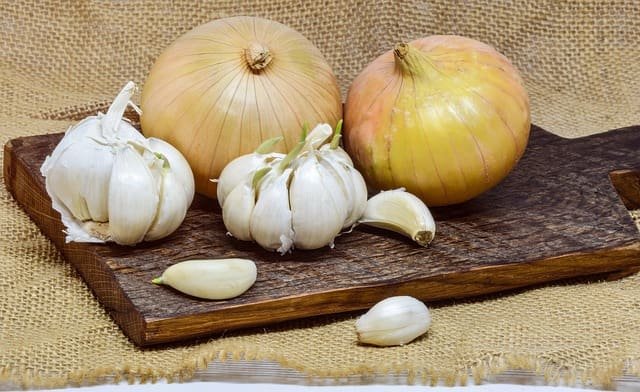
Caffeine
Caffeine in coffee, tea, and energy drinks can harm French Bulldogs. It can cause symptoms like restlessness, rapid breathing, elevated heart rate, muscle tremors, and even seizures. Keep all caffeinated products out of your dog’s reach.
Alcohol
Alcohol is highly toxic to dogs; even a tiny amount can cause severe consequences. French Bulldogs are particularly susceptible due to their small size. Keep all alcoholic beverages and foods containing alcohol away from your dog.
It’s important to note that this list is not exhaustive, and other foods can harm French Bulldogs. To ensure the safety of your furry friend, always research and consult with your veterinarian before introducing any new food into their diet.
Feeding Guidelines For French Bulldogs – Portion Sizes and Frequency
Feeding your French Bulldog the right amount of food and maintaining a consistent feeding schedule is crucial for their overall health and weight management. Overfeeding can lead to obesity, while underfeeding can result in malnutrition and other health issues. Let’s dive into the feeding guidelines for French Bulldogs.
- Portion Sizes: The appropriate portion size for your French Bulldog will depend on their age, weight, activity level, and overall health. It’s best to consult your veterinarian to determine the correct portion size for your furry friend. As a general guideline, most adult French Bulldogs require around 25-30 calories per pound of body weight daily.
- Feeding Frequency: Adult French Bulldogs can be fed twice daily, with meals evenly spaced apart. This helps prevent bloating and maintains a consistent energy level throughout the day. On the other hand, puppies may require three to four meals a day until adulthood.
- Mealtime Routine: Establishing a mealtime routine is beneficial for French Bulldogs. Choose a quiet and calm area for their meals, away from distractions. Avoid free-feeding or leaving food out all day, as it can lead to overeating. Stick to the recommended portions and remove any uneaten food after each meal.
- Water: Always provide fresh and clean water for your French Bulldog. Hydration is essential for their overall health and well-being. Ensure your dog has access to water, especially during mealtime and physical activity.
Monitoring your French Bulldog’s weight and adjusting their portion sizes is essential. If you notice any changes in their appetite, weight, or overall health, consult your veterinarian for further guidance.
Homemade Vs Commercial Dog Food For French Bulldogs
You can choose between homemade meals or commercial dog food when feeding your French Bulldog. Both options have pros and cons, and it’s essential to consider your dog’s specific needs and lifestyle before deciding.
- Homemade Meals: Meals give you complete control over the ingredients and food quality you feed your French Bulldog. You can tailor the meals to their dietary requirements, including allergies or sensitivities. However, ensuring that the homemade meals are nutritionally balanced and meet all your dog’s dietary needs is crucial. Consult with a veterinary nutritionist to create a well-balanced homemade meal plan.
- Commercial Dog Food: Commercial dog food is convenient for many dog owners. It is formulated to meet the nutritional needs of dogs and comes in various options, including kibble, wet food, and dehydrated food. Look for high-quality commercial dog food with animal-based protein as the main ingredient. Avoid products that contain fillers, artificial preservatives, and excessive amounts of carbohydrates.
It’s worth noting that some French Bulldogs may have specific dietary requirements or health conditions that require a specialized diet. In such cases, consulting with your veterinarian or a veterinary nutritionist can help you decide the best feeding option for your furry friend.
Supplements and Treats For French Bulldogs
Supplements and treats can be a great addition to your French Bulldog’s diet, but choosing them wisely and using them in moderation is essential. Here are some supplements and treats that can benefit your French Bulldog:
- Omega-3 Fatty Acid Supplements: Omega-3 fatty acids in fish oil or flaxseed supplements can support your French Bulldog’s skin, coat, and joint health. Consult with your veterinarian to determine the appropriate dosage for your dog.
- Probiotics: Probiotics are beneficial bacteria supporting your French Bulldog’s digestive health. They can help maintain a healthy gut flora and aid in digestion. Probiotic supplements specially formulated for dogs are available, but it’s essential to consult your veterinarian before adding them to your dog’s diet.
- Dental Chews: Dental chews can help promote good oral health in your French Bulldog. Look for dental chews designed to remove plaque and tartar buildup, reducing the risk of dental issues. Choose chews that are appropriately sized for your dog’s breed and age.
- Training Treats: Training treats can be an effective tool for positive reinforcement during training sessions. Opt for small, low-calorie treats that are specifically designed for training purposes. Break them into small pieces to avoid overfeeding.
When choosing supplements and treats for your French Bulldog, always read the labels, check for quality ingredients, and avoid products that contain excessive fillers, artificial additives, or ingredients that may harm your dog’s health.
Common Health Issues In French Bulldogs Related To Diet
French Bulldogs are prone to specific health issues that their diet can influence. Understanding these health issues can help you decide the best diet for your furry friend. Here are some common health issues in French Bulldogs related to diet:
- Allergies: French Bulldogs can develop food allergies or sensitivities, resulting in symptoms like itching, skin irritation, digestive issues, and ear infections. Common allergens include beef, chicken, dairy, wheat, and soy. If you suspect your French Bulldog has food allergies, consult your veterinarian for proper diagnosis and guidance on an appropriate elimination diet.
- Obesity: French Bulldogs tend to gain weight quickly, and obesity can lead to various health issues, including joint problems, heart disease, and decreased lifespan. Monitoring your dog’s weight and adjusting their portion sizes is essential. Avoid overfeeding and limit high-calorie treats and table scraps.
- Brachycephalic Airway Syndrome: French Bulldogs have a brachycephalic skull shape, which can lead to respiratory issues. Being overweight can exacerbate these issues, making it even more important to maintain a healthy weight. Feeding your French Bulldog smaller, more frequent meals can help prevent overexertion during mealtime.
- Gastrointestinal Issues: French Bulldogs can be prone to digestive problems, including flatulence, diarrhea, and sensitive stomachs. Choosing easily digestible foods and avoiding ingredients that commonly cause gastrointestinal issues can help alleviate these problems. Consult your veterinarian for dietary recommendations if your French Bulldog has ongoing gastrointestinal issues.
To ensure the best health outcomes for your French Bulldog, providing a diet that addresses their specific needs and helps prevent or manage these common health issues is crucial. Regular veterinary check-ups and open communication with your veterinarian are vital in maintaining your dog’s health.
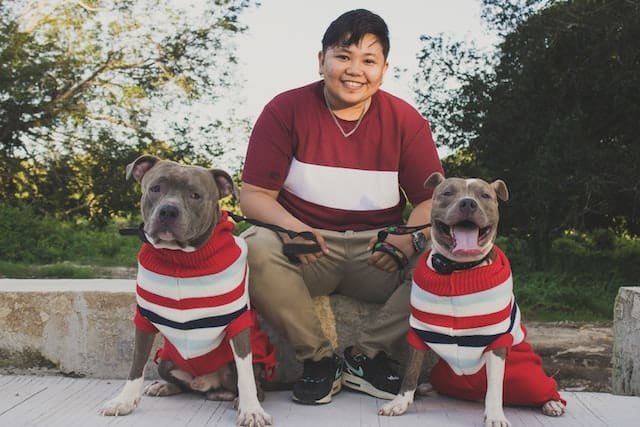
Tips For Transitioning Your French Bulldog To a New Diet
Transitioning your French Bulldog to a new diet requires patience and careful planning. Abruptly changing their food can cause digestive upset and reluctance to eat. Here are some tips to help you successfully transition your French Bulldog to a new diet:
- Gradual Transition: Start by gradually introducing the new food while reducing the old food over 7-10 days. Begin with a small amount of the fresh food mixed in with the old food, gradually increasing the proportion of the new food each day. This gradual transition allows your French Bulldog’s digestive system to adjust to the fresh food.
- Observe and Monitor: During the transition period, closely monitor your French Bulldog for any signs of digestive upset or adverse reactions. If you notice any vomiting, diarrhea, or loss of appetite, consult your veterinarian for guidance.
- Stick to a Routine: Maintain a consistent feeding schedule and portion sizes throughout the transition period. This helps your French Bulldog establish a routine and reduces the likelihood of overeating or digestive issues.
- Be Patient: Every dog is unique; some may take longer to adjust to a new diet than others. Be patient and allow your French Bulldog the time they need to adapt. If required, consult with your veterinarian for additional advice or alternative options.
Remember, when transitioning your French Bulldog to a new diet, choosing a high-quality food that meets their specific nutritional needs is essential. Please consult your veterinarian to determine the best diet for your furry friend and follow their recommendations for a smooth transition.
Conclusion
Providing the best nutrition for your French Bulldog is essential for their health and well-being. A balanced diet with high-quality protein sources, healthy fats, complex carbohydrates, fruits, and vegetables is vital to meeting their nutritional needs.
Knowing what foods are safe and beneficial for your French Bulldog and those to avoid is crucial to preventing health issues and ensuring their safety.
